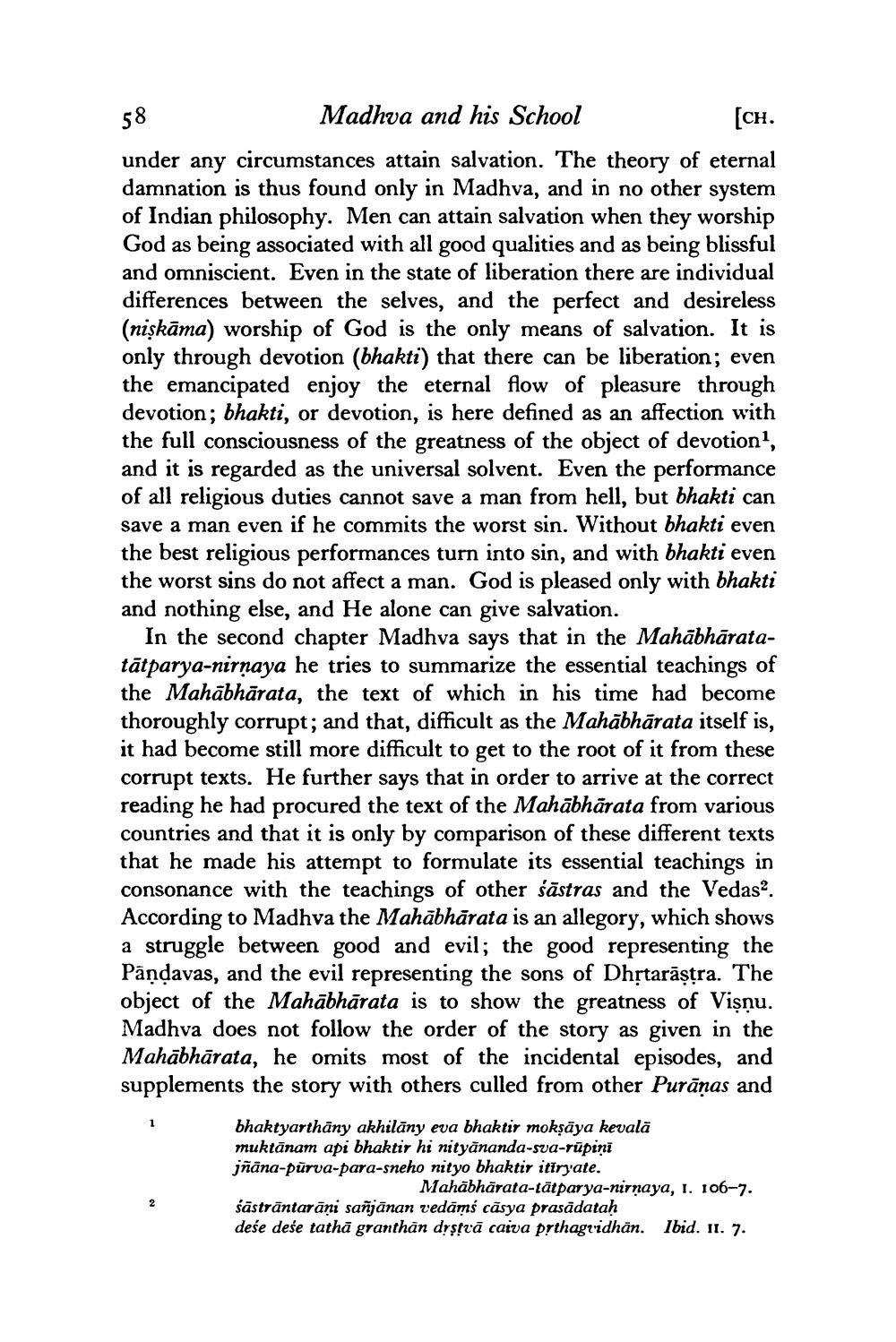________________
58
Madhva and his School
[CH. under any circumstances attain salvation. The theory of eternal damnation is thus found only in Madhva, and in no other system of Indian philosophy. Men can attain salvation when they worship God as being associated with all good qualities and as being blissful and omniscient. Even in the state of liberation there are individual differences between the selves, and the perfect and desireless (nişkāma) worship of God is the only means of salvation. It is only through devotion (bhakti) that there can be liberation; even the emancipated enjoy the eternal flow of pleasure through devotion; bhakti, or devotion, is here defined as an affection with the full consciousness of the greatness of the object of devotion?, and it is regarded as the universal solvent. Even the performance of all religious duties cannot save a man from hell, but bhakti can save a man even if he commits the worst sin. Without bhakti even the best religious performances turn into sin, and with bhakti even the worst sins do not affect a man. God is pleased only with bhakti and nothing else, and He alone can give salvation.
In the second chapter Madhva says that in the Mahābhāratatātparya-nirnaya he tries to summarize the essential teachings of the Mahābhārata, the text of which in his time had become thoroughly corrupt; and that, difficult as the Mahābhārata itself is, it had become still more difficult to get to the root of it from these corrupt texts. He further says that in order to arrive at the correct reading he had procured the text of the Mahābhārata from various countries and that it is only by comparison of these different texts that he made his attempt to formulate its essential teachings in consonance with the teachings of other śāstras and the Vedas. According to Madhva the Mahābhārata is an allegory, which shows a struggle between good and evil; the good representing the Pāņdavas, and the evil representing the sons of Dhịtarāsțra. The object of the Mahābhārata is to show the greatness of Vişnu. Madhva does not follow the order of the story as given in the Mahābhārata, he omits most of the incidental episodes, and supplements the story with others culled from other Purānas and
bhaktyarthāny akhilāny eva bhaktir mokşaya kevala muktānam api bhaktir hi nityānanda-sva-rupini jñāna-pūrva-para-sneho nityo bhaktir itiryate.
Mahābhārata-tātparya-nirnaya, I. 106-7. śāstrāntarāni sañjānan vedāms cāsya prasādataḥ dese dese tathā granthan drstrā caiva prthagridhān. Ibid. 11. 7.
Mahābhārsva prasādatah.
Ibid. 11. 7.




